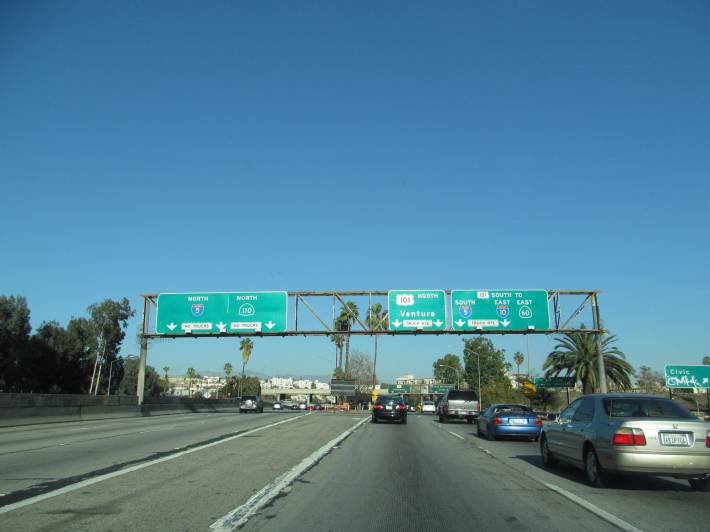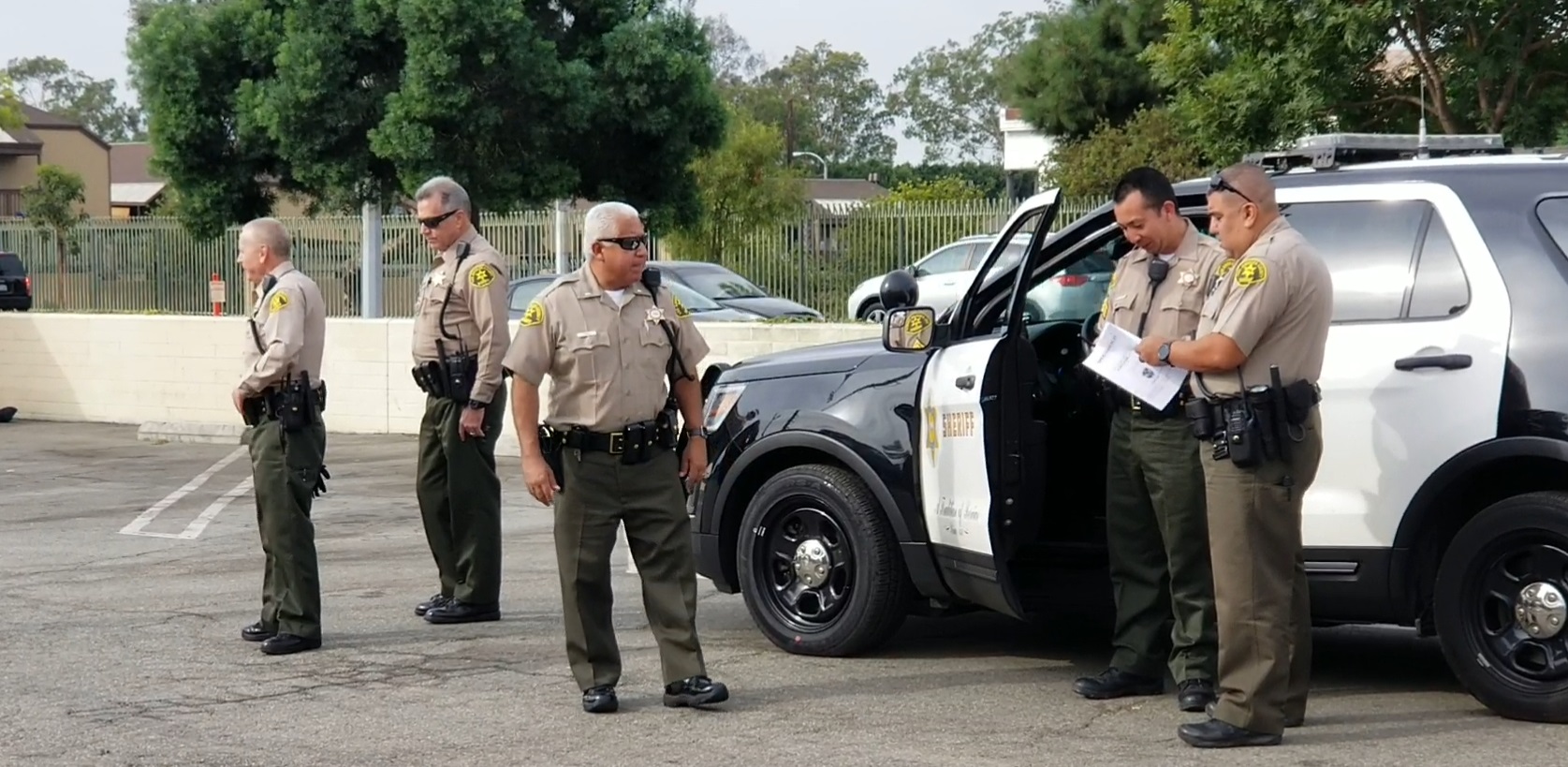[dropcap size=big]T[/dropcap]he Los Angeles County Sheriff’s Department racially profiled thousands of Latino motorists on the 5 Freeway, according to an investigative report by the Los Angeles Times.
The Times examined about six years of LASD data and thousands of traffic stops by the L.A. Sheriff’s “Domestic Highway Enforcement Team.” This operation patrolled a 40-mile stretch of the 5 between Santa Clarita and Gorman, and encompassed the areas of Castaic Lake, Six Flags Magic Mountain and Tejon Pass, a mountain artery known as the Grapevine.
The Times found that more than two-thirds of the drivers pulled over by the Domestic Highway Enforcement Team were Latino. The Times analysis also found that the sheriff’s deputies searched the vehicles of more than 3,500 of these brown drivers, who turned out didn’t have any drugs or other illegal items.
The Sheriff’s Department refuted the newspaper’s report. “We do not racially profile. We make stops based on behaviors and vehicle code violations, not ethnicity,” said Asst. Sheriff Eddie Rivero, in a statement released just hours after the publication of the Times article.
The operation made a slew of busts: more than 1,000 arrests. Deputies also netted a ton of methamphetamine, two tons of marijuana, 600 pounds of cocaine, and millions of dollars in suspected drug money. This begs the question: Is violating the civil rights of a whole class of people by racially profiling them worth it to keep drugs off California’s busiest highway?
Many of the team’s drug busts got dismissed in federal court as the credibility of some deputies came under fire. Judges ruled in some cases that deputies violated the rights of motorists by conducting unconstitutional searches, the report said.
RELATED: An Algorithm May Decide If You Can Be Out on Bail

L.A. Sheriff’s Department has had a history of problems, from issues around racial profiling to brutality in the jails.
[dropcap size=big]A[/dropcap]llegations of civil rights violations and racial profiling are nothing new for L.A. deputies. They have emerged again and again throughout a troubling history at the department, an ACLU representative told L.A. Taco.
“L.A. Sheriff’s Department has had a history of problems, from issues around racial profiling to brutality in the jails and a cover up of that brutality during a federal investigation, as well as issues around cliques or gangs inside the department,” said Peter Bibring, senior staff attorney and director of police practices at the ACLU of Southern California.
Just months ago, a secretive clique was uncovered inside the Sheriff’s Compton station out of a wrongful death suit by the family of Donta Taylor, who was chased down on foot and shot dead by deputies in 2016.
Although deputies claimed he had a gun, no weapon was recovered at the scene, according to an L.A. District Attorney memorandum. When asked if he held any ill feelings toward black people during the trial in July, Deputy Samuel Aldama paused for almost a full minute before admitting he had “feelings” about African Americans. He also admitted to having a skull tattoo on the calf of his leg that could signify membership of a secretive gang of Sheriff’s deputies at the Compton station.
The Sheriff’s Department was under investigation by the US Department of Justice over racial profiling.
The family’s lawyers argued the killing was racially motivated, and the tattoo was a badge for a clique that glorified ultra-aggressive police behavior and violence.
The Justice Department in 2013 concluded Sheriff’s deputies harassed and intimidated blacks, Latinos and low-income residents of Section 8 housing in the Antelope Valley. The investigation led to a settlement with the Justice Department that included a court order to provide police data and continued monitoring of the department’s progress. The court order to provide police data may have provided a key source of information used in The LA Times study.
“The Sheriff’s Department was under investigation by the US Department of Justice over racial profiling in Antelope Valley and agreed to a settlement to that investigation that included a set of data collection requirements,” Bibring said.
Whether it’s racial profiling or secret Sheriff’s cliques, the department may have to face its past even though it successfully makes arrests.
The history of these “cliques” go as far back as the 1960s and 70s with names such as The Little Devils, Grim Reapers, The Vikings, The Regulators, and Jump Out Boys. The L.A. Times study is the most recent broadside against the L.A. Sheriff’s Department.
Accusations of racism date back many decades. In 1991, a federal judge said many Los Angeles deputies at the Sheriff’s Lynwood station were motivated by "racial hostility" and used "terrorist-type tactics" with the knowledge of their superiors.
“The department has a long history of these problems,” Bibring said. “I think one of the concerns of a program like this that seems to involve behavior by deputies that had been flagged by courts and still continues [is that it] raises concerns that the department has a culture that tolerates this behavior.
RELATED: Los Angeles Not Immune to Racial Disparity in Weed Busts






